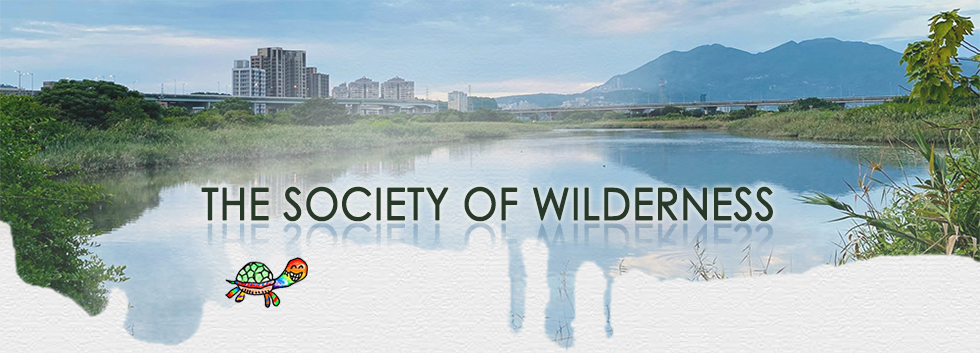Organized by Tzu-Ning
SOW Organization
Since its establishment, the Society of Wilderness (SOW) has gathered many people who devote themselves to environmental protection issues. Within SOW, there are three pillars supporting the organization: Members, Secretariat, and Volunteers. Each pillar plays its role, works with each other in every SOW action. In Chinese writing, combining three strengths will form the word which means “cooperate”. These three pillars cooperate to create synergy to support SOW in promoting sustainable environmental protection works.
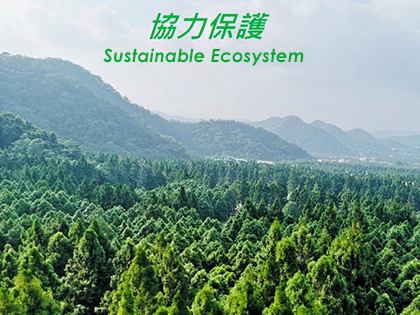
Source: Wilderness Crossing
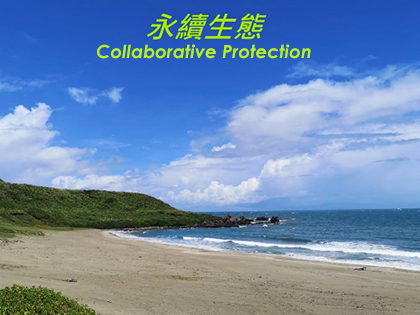
Source: Wilderness Crossing
(A) Organization – The 3 Pillars
Members
Members are people who share the same values with SOW in regard to environmental issues. They use spare time to participate in SOW events to get close to nature. Some members even become volunteers, providing additional monetary contribution to support the conservation and preservation of the natural environment. The members have another meaning to SOW, the greater the number of members who share the same values and ideals, the more power and influence SOW will have. SOW is the largest environmental group in Taiwan with over 20,000 members.
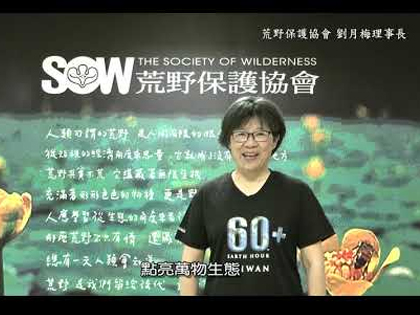
Chairperson Liu, Yueh-Mei
Source:https://img.youtube.com/vi/6Kkanhfh0lg/hqdefault.jpg
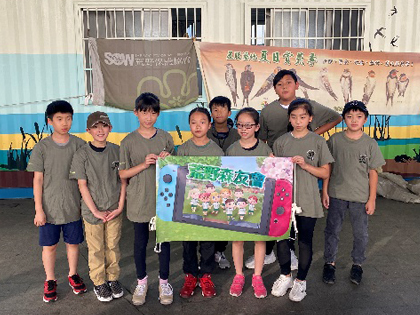
Source: Wilderness Crossing
Secretariat
Secretariat consists of full-time SOW staff workers, its main purpose is to provide support and service to members and volunteers, as well as assist organization’s operation and event promotion. In the process of getting to know SOW, we have discovered that prior to becoming full-time staff, many people started as volunteers and during the volunteering service, they have started to gain awareness and agree with SOW’s ideals and values. Because of their volunteer experience, they are able to have a more diverse perspective to cooperate with others to promote SOW values and ideals. Categorized by tasks and functions, Secretariat assigns personnel to head office, 11 branches, and various cooperative projects. The Secretariat General is the head of the office, who is appointed by the Chairperson.
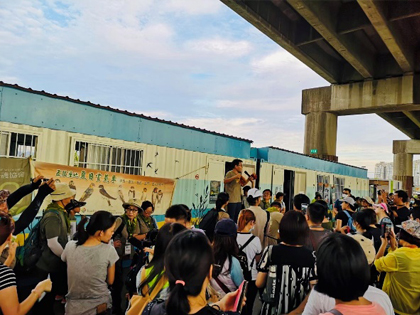
Source: Wilderness Crossing
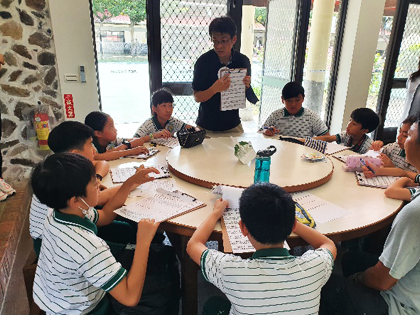
Source: Wilderness Crossing
 |
Volunteers
Volunteers have always been the driving force for SOW. Although they may come from different places, they share the same ideals and values on environmental issues. Through their actions, they hope to learn how to coexist with the environment. They also hope to preserve the beauty of Taiwan’s landscape and ecosystems as sustainable resources future generations can inherit.
Volunteers seem to have magical powers that give them the ability to touch everyone’s heart and persuade more people to spend more time to experience, understand, and further protect the natural environment. With volunteers’ selfless dedication over the years, SOW has become the pioneer on many Taiwan’s environmental issues. Their firm belief and enthusiasm have brought people’s attention to environmental protection.
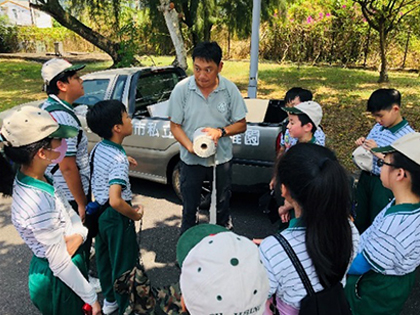
Source: Wilderness Crossing
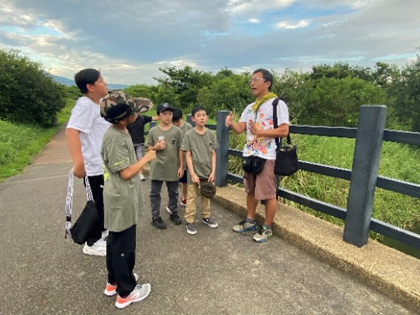
Source: Wilderness Crossing
(B) SOW Volunteers
There are three kinds of volunteers in SOW: Professional Volunteers, Passionate Volunteers, and Administrative Volunteers.
- Professional Volunteers: Need to go through volunteer training programs such as lecturer training, beach cleanup guide training. The content of the training programs is more academic. Volunteers will get acquainted with various conservation / preservation techniques and become fully knowledgeable of internal operations, event process and missions and values of the Society of Wilderness.
- Passionate Volunteers: Volunteers who are personally involved in events and activities, and able to set off to the event site when needed. The event and activities include habitat projects, habitat maintenance, and beach cleanup, etc.
- Administrative Volunteers: Mainly to handle the support administrative affairs of SOW.
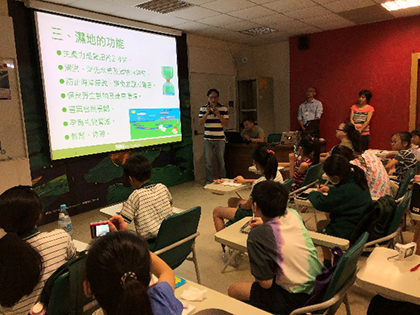
Source: Wilderness Crossing
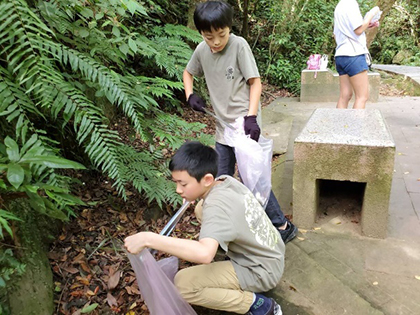
Source: Wilderness Crossing
Furthermore, since its establishment 25 years ago, SOW has been involved in more and more environmental issues. The volunteers are divided into different work environments, and have established committees according to their needs, hoping to create an opportunity for the general public to join and be part of SOW. Currently SOW has 13 work committees that handle environmental issues on education, promotion, habitat works, etc. SOW hopes to take root in education and plant the seeds of environmental protection in everyone’s heart. From the heart of individuals to groups of people, growing and maturing the concept of environmental awareness, and hope that we can work together for Taiwan’s and the world’s ecological environment.
Society of Wilderness Volunteer Organization |
|
| Committee | Mission |
| Guide / Education Committee | Guides are front-line staff of environmental protection activities. From guided tours, environmental education, habitat research and stationary conservation, you can see their presence, helping people to learn more about Taiwan and convincing people to act together to protect the environment. |
| Promotion / Lecturer Committee | Categorized into Intern Promotion Lecturer, Seed Promotion Lecturer, Advanced Promotion Lecturer, and Senior Promotion Lecturer. The target audience comes from different groups such as schools, communities, and corporates, etc. Through inspiring images, videos, and presentations, the lecturers reach out to the audience and hope that everyone would make changes for a better environment. |
| Parent-Child Education Committee | According to age, children and parents are grouped into “Little Ants”, “Dazzling Bees”, “Dashing Deers”, and “Flying Hawks”, taking the natural environment as the learning field that focuses on ecology and life. |
| Child Education Committee | Planning and Promotion of environmental education for children. Training program for child education staff. |
| Habitat Work Committee | Habitat Work requires cooperation and collaboration of other NGOs, corporates, media, and government to obtain supervision and management rights to lands in order to conduct conservation or preservation works. |
| Research & Development Committee | Promotion of “volunteer education” courses and conduct training courses for editorial journalists. |
| International Affairs Committee | As there are no boundaries to environmental issues, it is necessary to communicate and share information with different NGOs and governments around the world. |
| Local Care Committee | Research and discussion of domestic policies, and active participation in policy making in Legislative Yuan, provide recommendations and aim to apply a bottom-up approach to improve environmental issues. |
| Climate Change Education Committee | Promotion of education in regards to climate change. Through different workshops to guide the public to understand climate change and take actions. |
| Green Map Promotion Committee | Green Map is a global activity started in New York City in 1992. It was brought into Taiwan by SOW and promoted it to schools and communities. It is a very interesting environmental education tool. In order to do Green Mapmaking, everyone searches for green resources in the alleys, discovering local environments, enhancing community relationships, and encouraging people to take part in environmental protection in their lives. |
| Special-Education Committee | Tailor-made education courses by professionals from special-education, social works, and guides to share the beauty and benefit of nature, providing environmental education for people with special needs. |
| Nature Center Development Committee | Set up “stationary” teams at various locations to promote environmental education and activities with no physical offices. |
| Indigenous Committee | Focus on indigenous affairs, treasure Taiwan’s cultural diversity. |
- https://www.sow.org.tw/about-2019
- https://www.sow.org.tw/info/express
- https://www.sow.org.tw/about/report/works
- The Society of Wilderness Charter
- The Society of Wilderness Promotion Lecturer Certification
- The Society of Wilderness Parent-Child Education Committee Policy
- The Society of Wilderness Child Education Committee Policy
- The Society of Wilderness Climate Change Education Committee Policy

